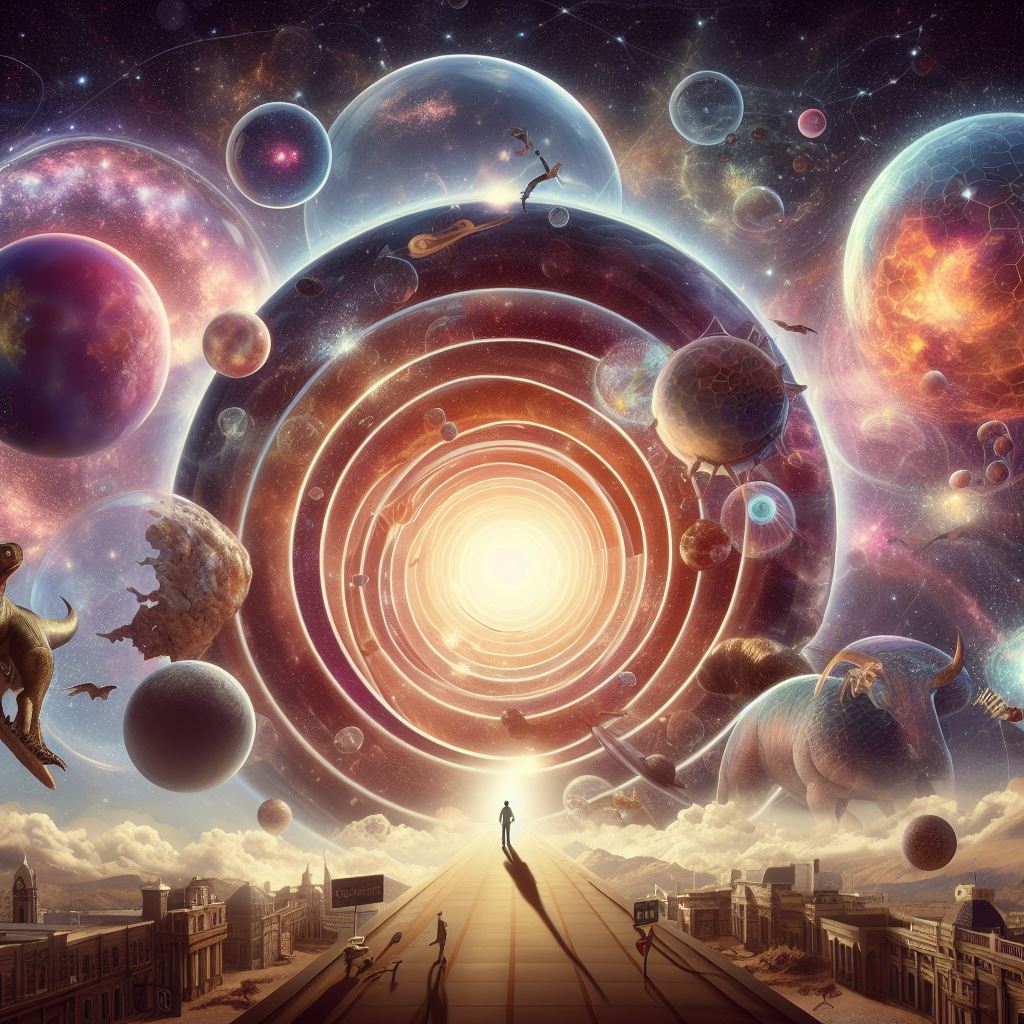
Exploring the Multiverse: Beyond Our Known Universe
Introduction
The vast expanse of our universe has always intrigued humans. But what if our universe is just a small part of an even larger canvas? Enter the multiverse, a concept that has sparked debate, inspiration, and endless curiosity.
Definition and Basic Concept of the Multiverse
Multiverse, a term that captures the imagination, refers to the hypothetical collection of multiple universes, including the one we reside in. Essentially, it is a cosmos in which there are multiple parallel universes or "alternate realities."
"Imagine if our universe is just one of many, each with its own laws of physics, timelines, and versions of reality." - The Hidden Reality by Brian Greene.
Historical Evolution of the Multiverse Theory
The idea of a multiverse isn't new. From ancient philosophical musings to modern cosmological theories, the concept has undergone significant transformations:
-
Ancient Philosophers: Concepts of alternate worlds and realities have been explored by various cultures and thinkers throughout history.
-
Quantum Mechanics: In the 20th century, with the advent of quantum mechanics, came the "many-worlds interpretation." This posits that every possible outcome of a quantum event actually occurs in a separate, non-communicating branch of the universe.
-
Cosmology: In the world of cosmology, the idea took root with the understanding of cosmic inflation and the possibility of multiple bubbles of space-time, each representing a different universe.
Different Categorizations and Types of Multiverses
Multiverse theories are abundant and diverse. Here are the key types, based on current scientific categorizations:
- Bubble Universes: Stemming from the concept of cosmic inflation, these are universes that have undergone rapid expansion and formed "bubbles" in a greater cosmic arena.
- Parallel Universes: These are universes similar to ours but may have different outcomes for historical events.
- String Theory Dimensions: According to string theory, there are multiple dimensions of existence, and our universe is just one three-dimensional slice of a multi-dimensional reality.
- Quantum Realms: Every quantum event spawns a new universe where every possible outcome takes place.
For example, in a parallel universe, the outcome of historical events might be entirely different, leading to alternate realities. Imagine a world where the course of World War II took a different turn or where dinosaurs never went extinct!
Current Scientific Views and Controversies Surrounding the Multiverse
The multiverse theory is awe-inspiring but also controversial. Here's what the scientific community has to say:
-
Support: Some physicists argue that multiverse theories provide answers to some of the most perplexing questions in cosmology. For instance, the values of certain fundamental constants that seem "fine-tuned" for life might be explained by the existence of numerous universes with different constants.
-
Criticism: Critics claim the multiverse theory is unscientific because it's untestable. If we can't observe or measure these other universes, can it really be considered a part of empirical science?
Experimental Evidence and Criticisms
Currently, there is no direct evidence for the existence of a multiverse. However, researchers are exploring several avenues:
-
Cosmic Inflation: The afterglow of the Big Bang, known as the Cosmic Microwave Background, might contain hints of collisions with other universes.
-
String Theory Predictions: If string theory is correct, certain effects could potentially be observed that would hint at the existence of extra dimensions.
-
Criticism: Due to the nature of the theory, many scientists argue that the multiverse might forever remain in the realm of speculation.
Implications of a Multiverse for Our Understanding of Reality, Physics, and Philosophy
-
Reality: The very fabric of what we consider 'real' gets challenged. If there are infinite versions of reality, which one is the "true" one?
-
Physics: Multiple universes could mean multiple sets of physical laws. This offers both challenges and opportunities for understanding the fundamental nature of reality.
-
Philosophy: Philosophers have long pondered questions of existence, purpose, and reality. The multiverse adds another layer to these age-old debates.
Multiverse versus Universe: What's the Difference?
-
Universe: Refers to the totality of everything that exists — all of space, time, matter, and energy.
-
Multiverse: A collection of multiple universes. It extends the boundaries, suggesting that our universe is just one of countless others.
Conclusions
The multiverse theory, while still a topic of heated debate and speculation, offers a fascinating lens through which to view the cosmos. Whether it ever becomes an established part of scientific canon remains to be seen. But one thing is certain: our quest for understanding the nature of existence and our place within it is ever-evolving.
Whether you're a student of physics, a researcher, or just someone with a keen interest in the universe's mysteries, the concept of a multiverse challenges us to think bigger, dream wilder, and explore further than ever before.
Sources and Further Reading:
- "The Hidden Reality" by Brian Greene
- Various research papers from Nature and Physical Review Letters
- Talks and interviews from renowned physicists and cosmologists
- NASA, CERN, and the European Space Agency websites for data and findings.


